You must keep on top of your oral health and visit the dentist at least two times per year. There’s a lot that you’ll learn during these visits. There will likely be good news and bad news. There are probably several things that your dentist thinks you could do better. To show you what we mean, we have this list of the 20 things your dentist wishes you’d quit doing. The tips on this list are varied and include important foods to avoid, behaviors you should stop during your visits, and bad habits you should quit so you can get an A+ during your next dentist visit.
Chewing on Hard Objects
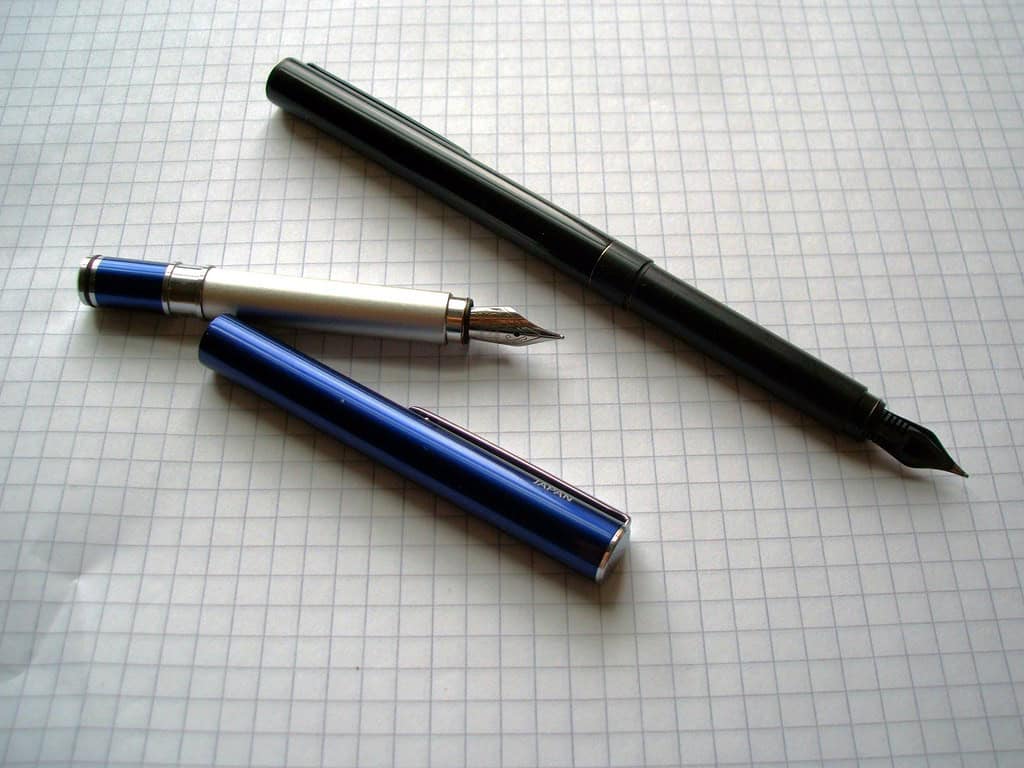
©"Ohto Tasche and Muji Pocket pen" by gds is licensed under BY-SA 2.0. - Original / License
Many of us have bad habits, and in many cases, they involve chewing on hard objects. That could be a nail file, your pen or pencil, and even pieces of ice. However, your dentist wishes you’d quit doing that. Hard items put a lot of stress on your teeth and the enamel on them. The enamel on your teeth is very hard because it must withstand the hard items you eat. However, when you chew on hard items that aren’t edible, you can’t chew through them, so it causes major issues. Without enamel, your teeth can quickly begin to deteriorate. That means more work for the dentist and more money you potentially pay out of pocket.
Lying About Your Oral Care Habits
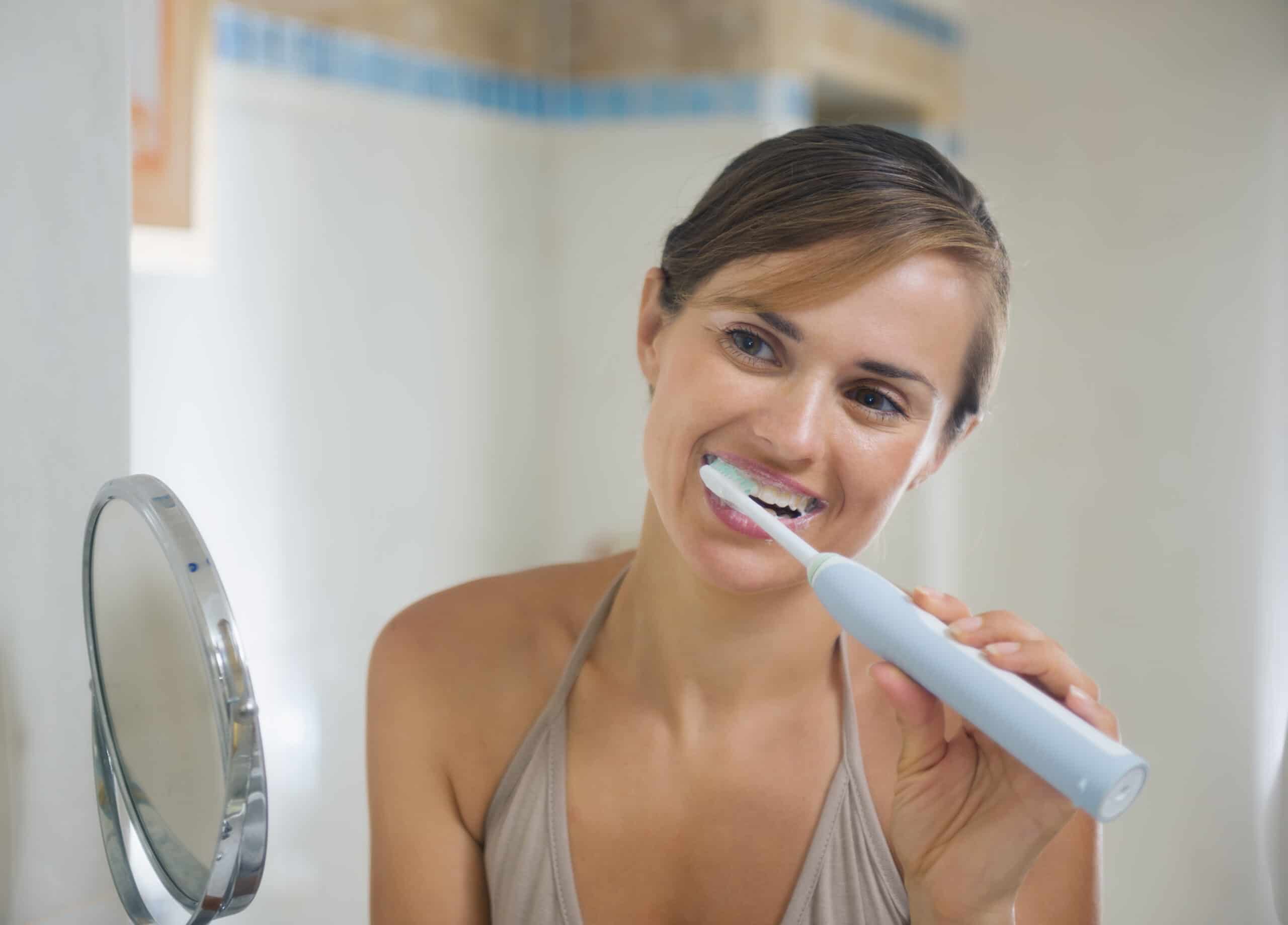
©Alliance Images/Shutterstock.com
One thing your dentist wishes you’d quit doing is lying to their face. You’re supposed to brush and floss your teeth regularly. A trained dentist who has had many years of schooling and training knows what clean teeth look like. They know if you brush regularly and floss every day or if you only flossed that day. When you sit there and lie about how well you take care of your teeth, your dentist can tell, but many of them don’t appreciate your fabrication of the truth. Really,the best thing you can do is either be honest about what you do everyday or don’t say anything and then just listen to the advice of your dentist. They don’t like it when you insult their intelligence.
Not Following Advice When It Comes to Perscriptions
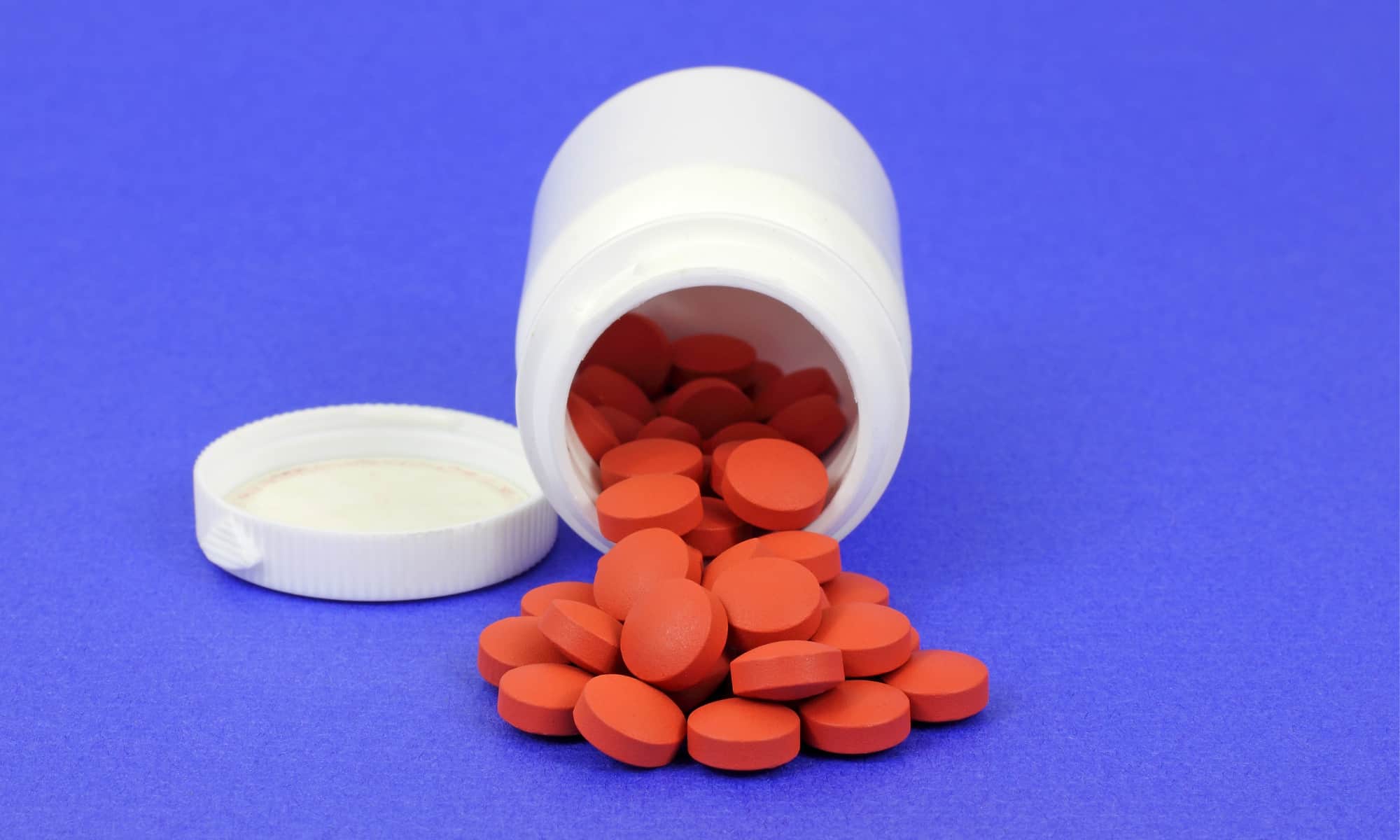
©iStock.com/BWFolsom
Many dentists get irked when you don’t follow the instructions they give you, especially when it comes to taking antibiotics. Typically, if you need antibiotics, the dentist will tell you to take them until the prescription runs out. However, many people stop taking their antibiotics once they start to feel better. That’s not the way it’s supposed to be, and in fact, it’s dangerous not to follow the instructions. Even if you feel better, you still need to take the medication so that you completely eliminate the bacteria. That goes for any medication. Don’t believe that you know better than the doctor, and don’t try to save medication for a later time.
Neglecting Your Tongue
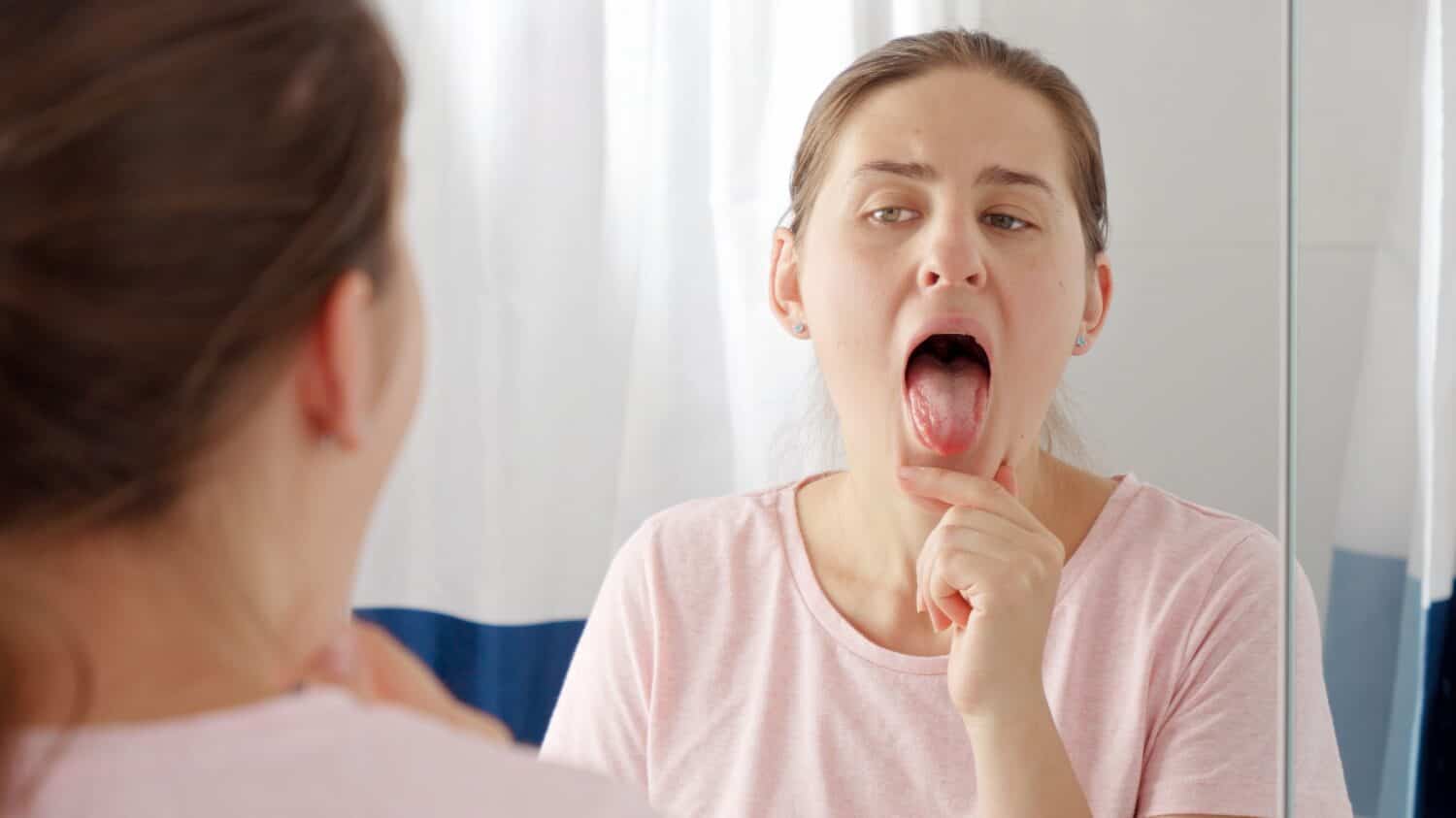
©Kyrylo Ryzhov/Shutterstock.com
Your dentist is proud when you brush and floss your teeth. However, when you fail to pay attention to your tongue, that spells trouble. The problem is that your tongue makes up for half of the bacteria in your mouth, which can be a factor that leads to gum disease and cavities. A dentist will likely be upset if you don’t take care of your tongue after they tell you that you should. There are numerous ways to clean your tongue. You can use your toothbrush to scrub the entire surface until it’s clean. Another way is to use an actual tongue scraper that you can glide over your tongue to keep it clean. Finally, try using an antiseptic mouthwash that you swish around in your mouth. Try one of all of these methods, and you’ll be much healthier while making your doctor much happier.
Forgetting to Brush Before Bed
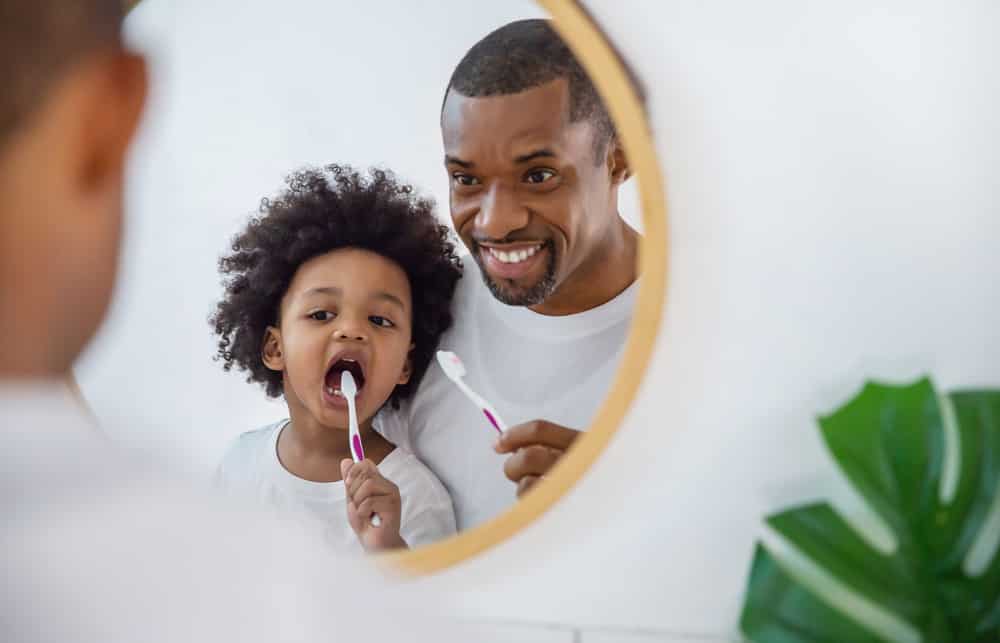
©paulaphoto/Shutterstock.com
While you’re encouraged to brush your teeth several times per day, your dentist will likely be irritated if you aren’t brushing at night. Doing so is imperative because it’s when you brush away all of the food particles and plaque from the day. Otherwise, you’re sleeping at night and simply letting the germs, gum disease, and cavities occur. When you’re sleeping and not eating, you give your mouth a rest. Ideally, you should be brushing your teeth at night and in the morning. If you have a big meal, it can’t hurt to brush again along with flossing. If your dentist tells you to brush at night and you don’t, he’ll be able to tell.
Skipping Dental Check-Ups

©iStock.com/Aliaksandr Bukatsich
It continues to be the recommended rule that you should visit your dentist every six months. Going allows the dentist a chance to give you a cleaning and to check for any issues. If you fail to go as often as you should, then you could have more problems when you do go. Although a dentist won’t argue with getting paid to do more work, they do care about your health, and they want you to take preventative measures to be in the best of health. Sometimes, a dentist will tell you to come more often for additional care. They make these recommendations for a reason. Don’t put yourself in harm’s way and irritate your dentist by skipping these appointments.
Skipping the Floss

©Krakenimages.com/Shutterstock.com
In addition to brushing, your dentist wants you to floss your teeth daily. This practice is essential so you can get the plaque between your teeth that you can’t reach with your toothbrush. Failing to floss at all can lead to gum disease. Plus, imagine all of the food that’s stuck in your teeth when you don’t floss. If you tell your dentist that you floss, they’ll be able to tell if you’re lying. If the dentist tells you to floss and you show up six months later and completely disregard his advice, he’ll likely also be annoyed. Flossing only takes a couple of minutes per day, but you must pay attention to what you’re doing to make it worth it.
Continuing to Eat Sugary Snacks

©5second/iStock via Getty Images
At this point, you should know that eating too many sugary snacks is bad for your overall health, and they’re especially bad for your teeth. Sugary and acidic foods greatly increase your risk for tooth decay. Your dentist may be especially annoyed if you’re a parent and they see that your kid has had too many sugary snacks. You may get a lecture before you leave. Instead of sugar, opt for healthier foods, which include nuts, fruit, and vegetables. If you do eat sugar, make sure to brush your teeth to limit the damage.
Lying About Your Symptoms
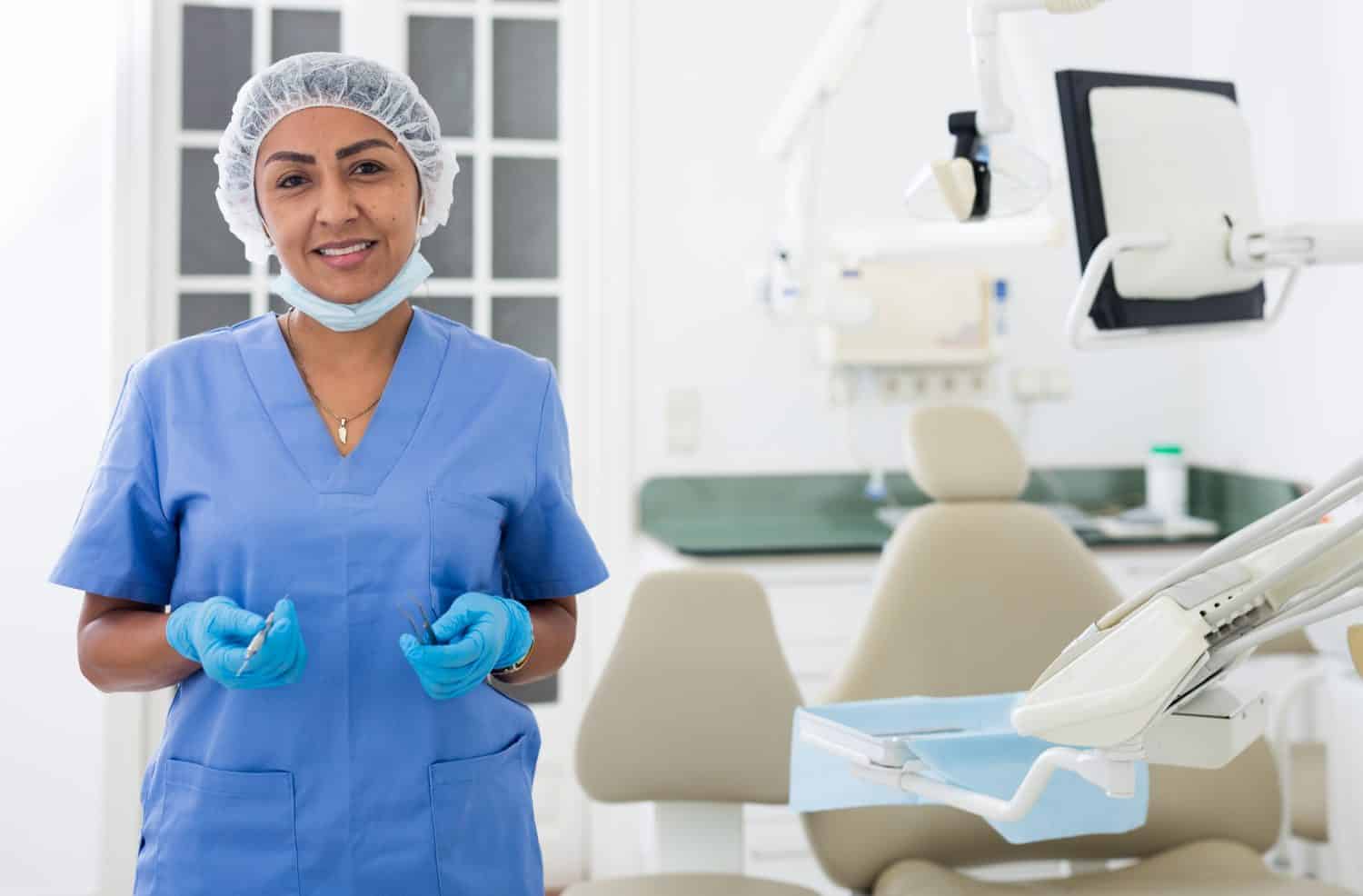
©BearFotos/Shutterstock.com
When it comes to your dental appointments, one thing your dentist wishes you’d quit doing is lying about your symptoms. During almost every single six-month check-up, your dentist is going to ask how you’re doing and what issues you’re currently having with your teeth. If you’ve been feeling any pain or you’ve noticed any issues, bring them up. Don’t lie about your symptoms. Yes, it may be embarrassing to mention that you have some pain because that may mean that you’ve been eating those sugary foods or not brushing. Still, the point of asking is not to embarrass you. It’s to help the dentist understand what you’re feeling so they can properly conduct the check-up.
Being Late to Your Dental Appointments

©mpohodzhay/Shutterstock.com
Just like with the doctor, your dentist wants you to show up on time to your dental appointments. The day is set up based on the number of appointments. The dentist knows exactly what each will appointment will likely entail, and they slot out that timeframe. If you’re late, you throw the whole day off. In addition to making the people after you wait longer, you may have to wait longer yourself. When it comes to these appointments, you want to try to be a few minutes early. If you arrive right at the exact time, then by the time you check-in, you’ll still likely be late.
Using At-Home Whitening Kits
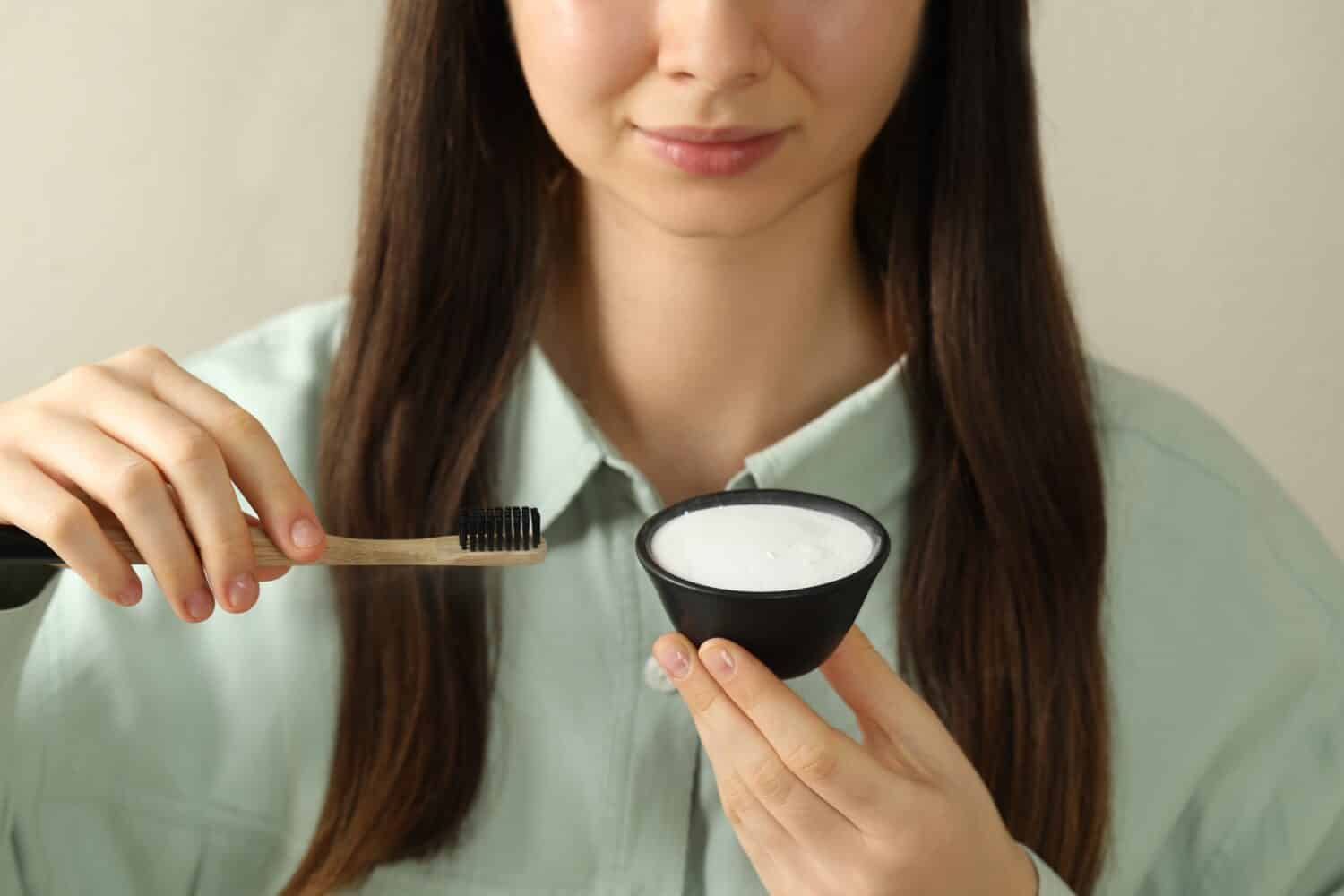
©New Africa/Shutterstock.com
Almost everyone wants to have sparkling white teeth. However, one thing your dentist wishes you’d quit doing is getting kits at home and doing it yourself. No, it’s not just because your dentist wants you to pay them more money to have it done in the office. Instead, it’s because these kits can be harmful to your teeth. When you aren’t bleaching with the help of a professional, you can thin the enamel on your teeth and cause serious gum irritation. Many dentists don’t believe that at-home whitening kits work. Even if they do, they typically don’t get in between your teeth. In addition to looking bad, that also means more work at the dentist to get the area repaired. Many dentists are just annoyed that you won’t trust them as professionals instead of thinking you know more than them.
Opting Out of Taking X-Rays
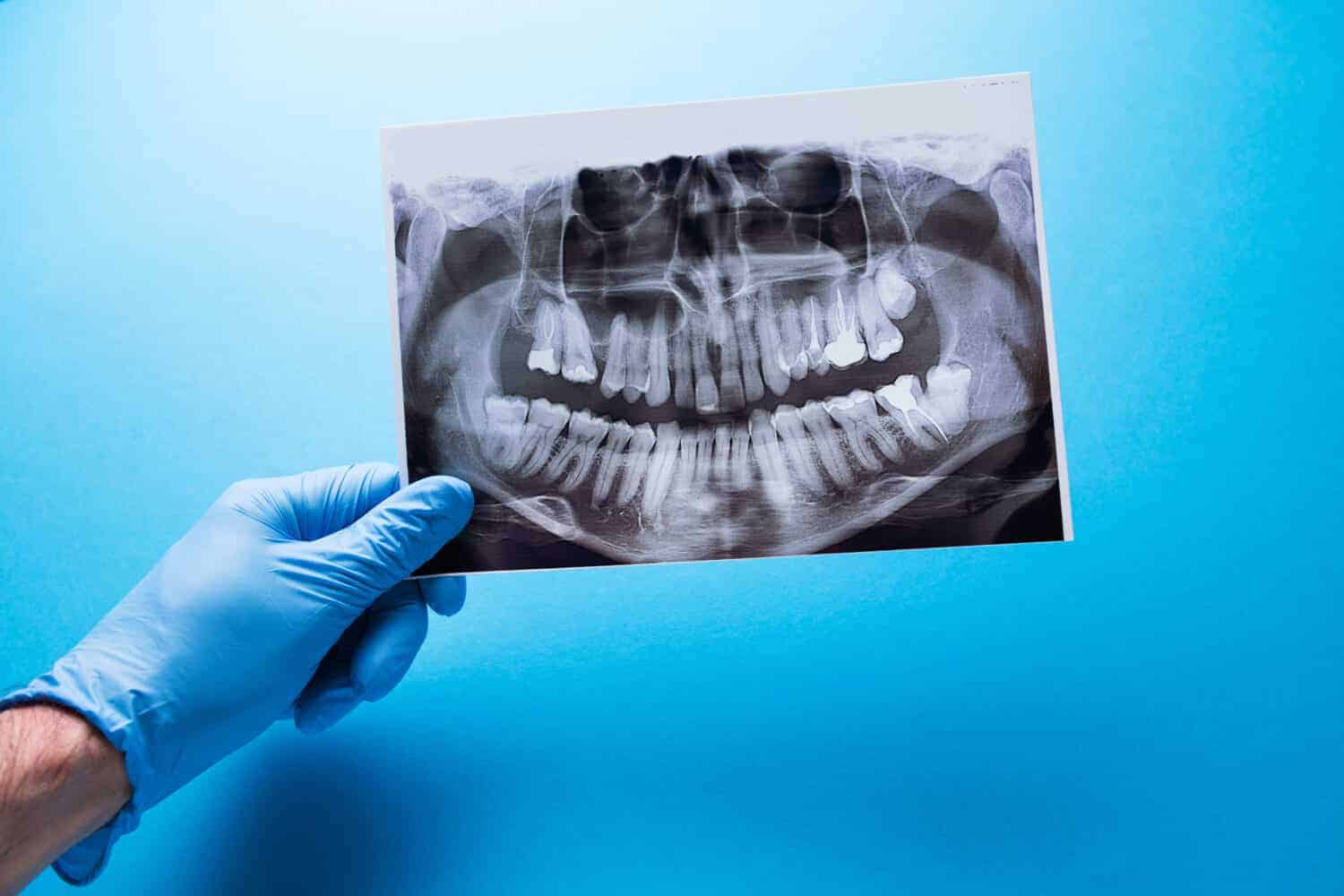
©vfhnb12/Shutterstock.com
Many patients are skittish when they first get to their six-month check-up, and the dental assistant mentions that they need to get new X-rays. Most of the time, the fear is about the radiation from the x-ray machine. After all, the dental assistant often hides around a corner while pushing the button to take the shot. Still, you don’t need to worry. The machine only emits a tiny amount of radiation. it’s not enough to hurt you if you get them every six months. More importantly, the X-rays are essential so your dentist can really see what’s going on inside of your teeth where he can’t see with his own eyes. Take the x-rays for your own health.
Not Admitting Your Medical History
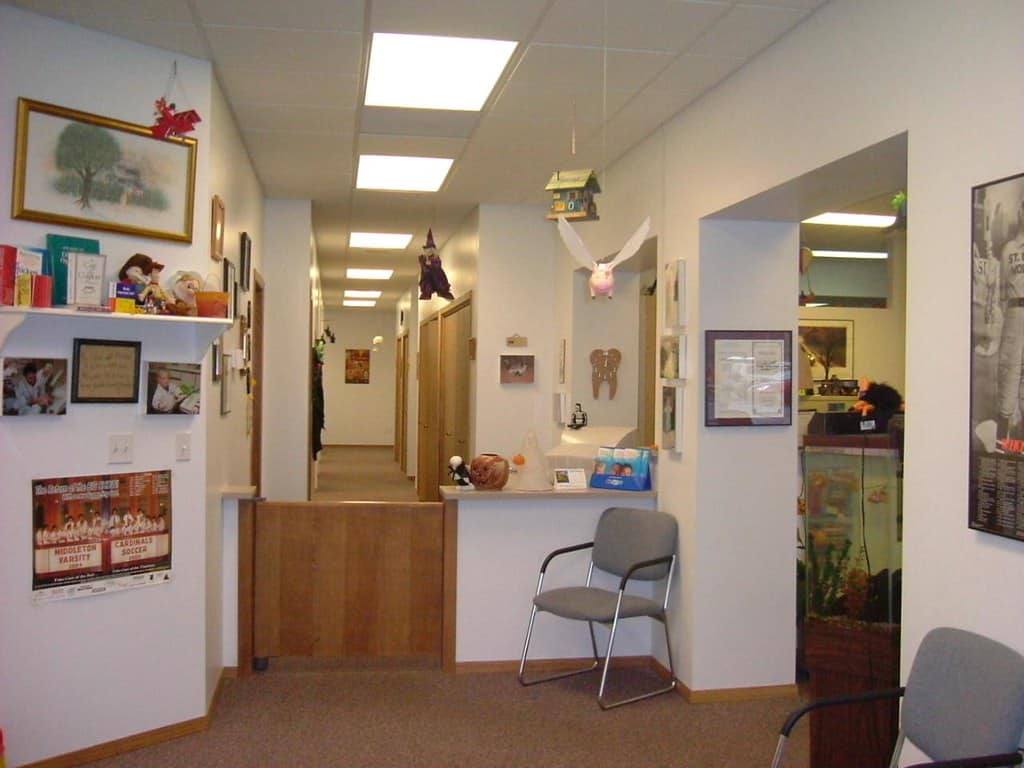
©"Dentist's office" by Aine D is licensed under BY-SA 2.0. - Original / License
In addition to mentioning pain and discomfort in your mouth, you also want to be honest when you fill out your paperwork about your overall medical history. Many ailments that you don’t believe are connected to dental health can actually be majorly connected. Issues like high blood pressure and sinus problems can point to dental problems. You should also be honest about the medication you’re taking. Some medications may cause issues if you also get anesthesia. Also, many medications have side effects like dry mouth, which can be a cause of cavities. Think of the dentist just like the doctor. They need as much information as possible to provide the proper care.
Putting a Lemon in Your Water
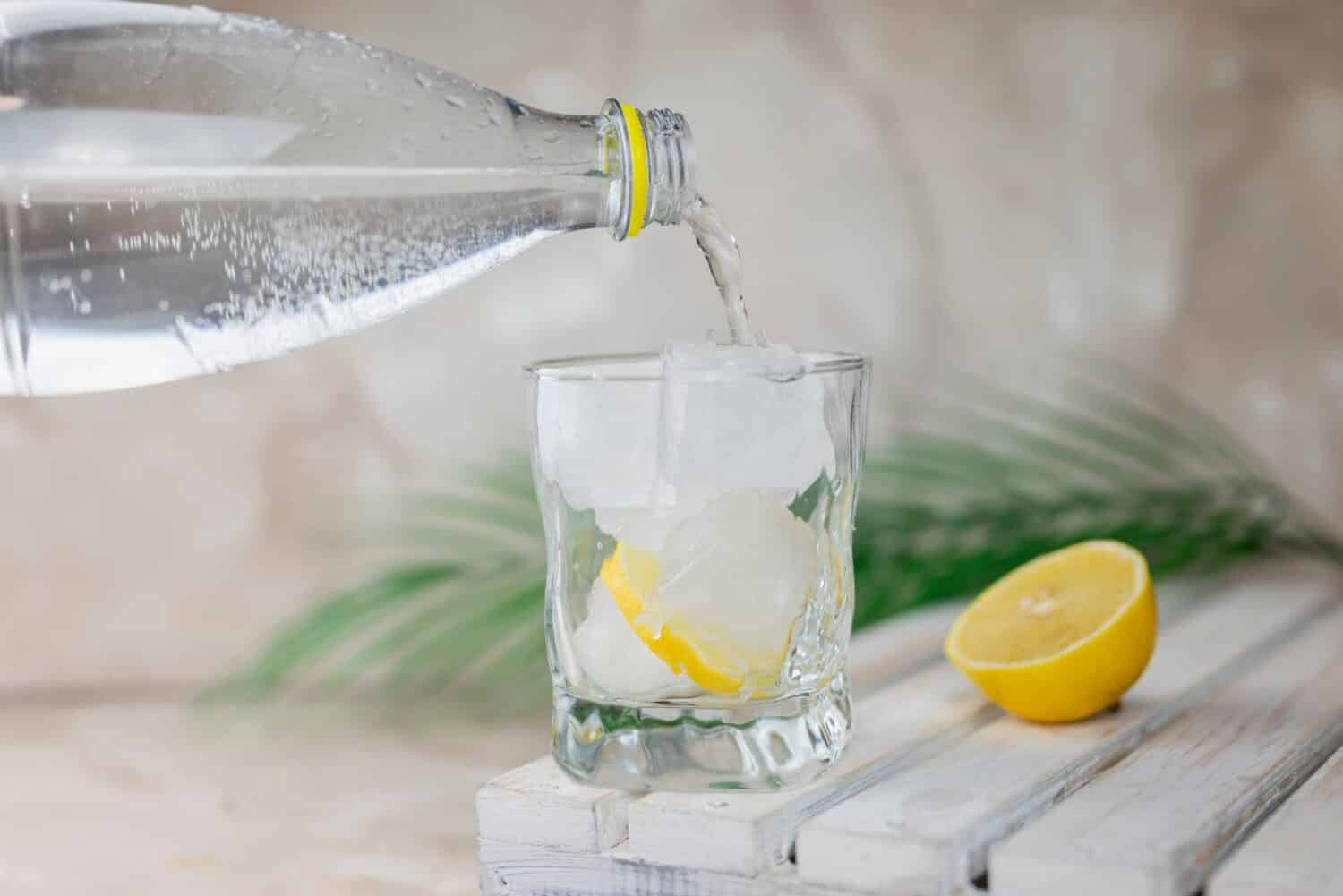
©Sheviakova Kateryna/Shutterstock.com
Many people enjoy extra flavor to their water by adding a slice of lemon, whether it’s at home or in the restaurant. That’s generally frowned upon for several reasons. For one, lemons are often not the most sanitary item in the kitchen. Many times, they’re just sitting on the counter and are touched without gloves. When it comes to your oral health, the acidity of lemons can be detrimental to your teeth. Lemons can lead to gum disease, tooth decay, and especially the enamel, which is the outer layer of your teeth. When that breaks down, you’re more susceptible to damage and disease. Over time, lemons can also negatively affect your breath. Dentists don’t want you to hurt your teeth, so they wish you’d stop with the lemons.
Calling or Texting During Your Dental Appointment

©DenPhotos/Shutterstock.com
We know that it’s almost impossible to go through the day in 2024 without using our phones, but there are times when they should stay in our pockets. The times when you’re talking to a doctor and sitting in a dentist’s chair are two of these instances. When you’re lying back in the chair, and the dentist is hard at work, the last thing you want to do is take a call. The dentist puts you in a particular position for a reason. If you move, you risk injury. If you know for a fact that the call is an emergency, then mention it to your dentist. Otherwise, keep it on silent.
Believing That Sugar-Free Gum is a Substitute for Brushing

©artfotoxyz/Shutterstock.com
There is a rumor that has spread over the years. The idea is that you can chew sugar-free gum because chewing gum helps to wash away that acid that’s found in most food and drink so that it doesn’t affect your enamel. There is some truth to it since some gum is made with the ingredient xylitol, which can help to wash away some acid. Still, chewing gum doesn’t mean that you don’t have to brush your teeth again. Your toothbrush gets in places that your saliva may not be able to reach. Your best bet is just to follow the instructions of your dentist and brush and floss.
Using a Manual Toothbrush
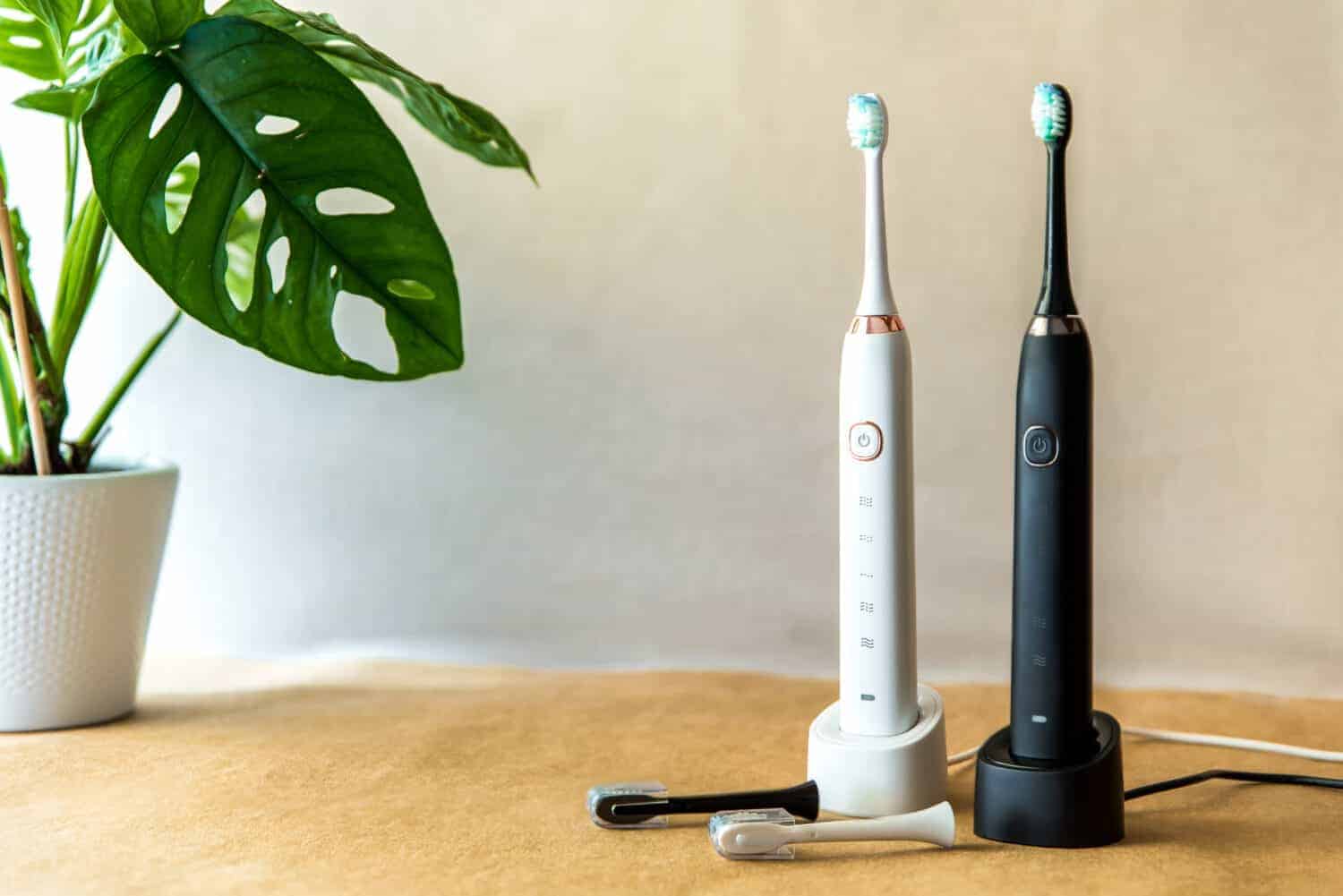
©Damian Lugowski/Shutterstock.com
Though there are some differing opinions on this subject depending on who you go to, most dentists wish that you’d stop using a manual toothbrush. Many manual toothbrushes have hard bristles that add too much pressure, and they can brush off the protective enamel on your teeth over time. Overall, dentists prefer that you use electric toothbrushes. When you’re brushing your teeth, it’s all about consistency, and an electric toothbrush applies the same amount of pressure the whole time, so you’re less likely to brush off that enamel. Also, electric toothbrushes hit the spots that you often miss with a manual brush. Finally, you’re supposed to brush your teeth for two minutes straight. Many people with manual brushes don’t get close to that. Many electric brushes have a two-minute timer, so you’re guaranteed to brush properly.
Drinking Coffee

©Rawpixel/iStock via Getty Images
There are always ongoing debates about the danger or benefits of drinking coffee. While it does have its perks, coffee is not exactly healthy, especially for your teeth. Coffee is incredibly acidic, so it quickly begins to wear away the enamel on your teeth, and it also leads to staining. Over time, coffee stains become very stubborn, and it’s not easy to get rid of them by brushing. If your dentist tells you to cut back on coffee, then seriously consider doing so. Smoking is also bad for your dental and overall health, but you should already know that.
Making Your Kids Nervous in the Dentist Chair
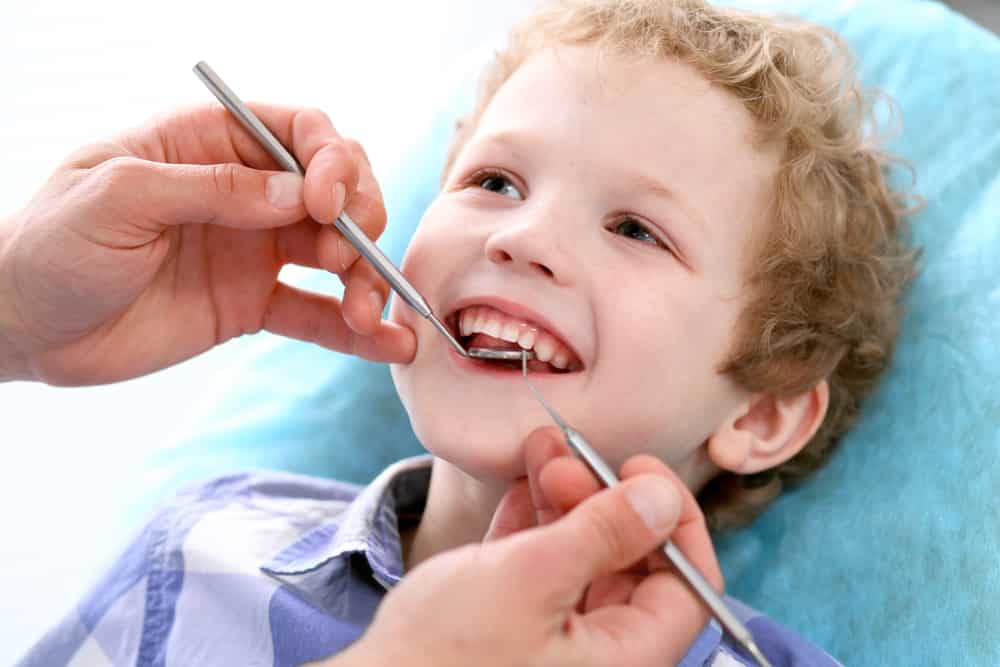
©Andrei_R/Shutterstock.com
A good dentist wants to help people of all ages have the best teeth possible. Even small children are welcome in the dental chair with adult supervision. Most kids are well-behaved, even if they don’t know exactly what’s going on. However, one thing your dentist wishes you’d quit doing is making your kids freak out while they’re in the chair. Many parents will tell their kids that they’re about to feel pain or to make a noise when the kid moves. Dentists who care for patients of all ages know that kids may be a bit squeamish during their visit, and they know how to handle them. They usually don’t need your help, and most cases, your overreacting will just make the situation worse.
Using Anything That’s Not Toothpaste

©Ivan Babydov/Shutterstock.com
A final behavior that your dentist wishes you’d quit doing is trying to experiment on your teeth. Toothpaste has been proven to be the best thing for oral health. However, there are a lot of fads out there, such as using charcoal powder. That’s a bad idea because it damages the enamel, leaves behind residue that keeps your teeth dirty, and it’s proven not to be effective at all. Another current fad is exchanging toothpaste for oil. The idea of oil pulling is that it’s an oil that you swish in your mouth. They say it whitens teeth and removes tooth decay. However, it’s also been found that oil pulling can lead to dry mouth, muscular stiffness, and loss of taste. Plus, it’s just not that great for your teeth. The best advice is to simply use toothpaste and follow the usual dental routine.
The image featured at the top of this post is ©BearFotos/Shutterstock.com.